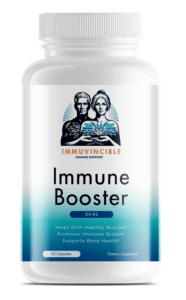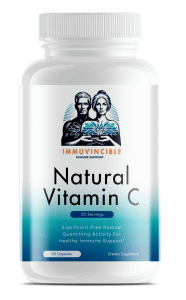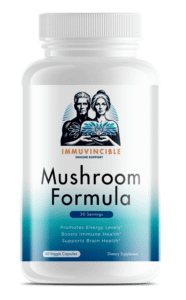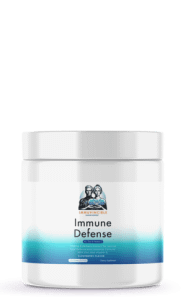Office workers face unique challenges when it comes to maintaining adequate levels of vitamin D. With long hours indoors,...

Why Do I Still Get Sick Despite Eating Healthy?
It can be incredibly frustrating to fall ill frequently despite maintaining a healthy diet. While eating healthy is a key factor in supporting the immune system, there are other aspects that could be impacting your immune response. Let’s explore some potential reasons why you might still be getting sick and provide practical solutions for handling these issues.
Stress
Chronic stress can significantly weaken the immune system by elevating cortisol levels and suppressing immune function. Even if you’re eating well, stress might sabotage your immune defenses. Potential solutions include deep breathing exercises, regular moderate exercise to reduce stress hormones and boost immunity, and ensuring you get 7-9 hours of sleep per night to allow your body to repair and recover from stress.
Lack of Sleep
Poor sleep quality or insufficient sleep can severely affect the immune system. Sleep is essential for the production of cytokines, which are proteins that target infection and inflammation. Improve your sleep by creating a bedtime routine that encourages restful sleep: avoid electronics an hour before bed, create a dark and quiet sleep environment, and try to go to bed and wake up at the same time every day.
(If sleeping is a problem for you, you might consider asking your healthcare professional if using sleep supplements such as melatonin, L-tryptophan, or magnesium is an option for you.)
Overtraining or Lack of Exercise
Both too much and too little exercise can negatively impact your immune system. Overtraining can lead to chronic inflammation and immune suppression, while a sedentary lifestyle weakens immune function. Aim for balanced, regular exercise such as walking, swimming, or cycling for 30 minutes most days of the week (I walk every day with my husband). Avoid extreme or excessive high-intensity workouts without proper rest, and incorporate stretching and low-impact movement on rest days to allow your body to recover.
Nutrient Deficiencies
Even with a generally healthy diet, you may still be deficient in specific vitamins and minerals that play critical roles in immune function, such as Vitamin D, zinc, selenium, and Vitamin C. Soil depletion, poor absorption, and certain health conditions can lead to nutrient gaps—this is not uncommon.
Consider getting blood work done to check for deficiencies in key nutrients. If deficiencies are identified, supplement your diet with the necessary nutrients, consulting with a healthcare provider for assistance (you can see our supplements here).
Another important step is to diversify your diet. Include a wide range of fruits, vegetables, nuts, seeds, and lean proteins to ensure you’re covering all your nutritional bases.
Aging
Our immune system naturally weakens as we age—a phenomenon known as immunosenescence (I know, I also can’t pronounce it properly!). This decline can make it harder for the body to fend off infections, even with a healthy lifestyle. Combat this by eating immune-boosting foods like garlic and ginger (also great if you just boil it in a little pan and drink it as tea), berries, and leafy greens. Regular checkups can also help monitor health changes that could impact your immunity. Taking supplements to support your immune system has proven to be very effective as well. (Again, you can get those here.)
Gut Health Imbalance
A large portion of your immune system resides in your gut, and poor gut health can weaken immune defenses. Factors like low fiber intake, taking antibiotics, or poor probiotic diversity can disrupt gut flora, leading to immune problems. To improve gut health, include probiotic-rich foods like yogurt, kefir, and fermented vegetables, and prebiotic foods such as garlic, onions, and bananas. Increase your intake of fiber-rich foods like legumes, fruits, and vegetables to nourish healthy gut bacteria. There are some good prebiotic and probiotic supplements available that can also help address this issue.
Prebiotics vs. Probiotics
Both prebiotics and probiotics are good for your gut but help in different ways.
Prebiotics are a source of food for your gut’s healthy bacteria. They’re carbs your body can’t digest. So they go to your lower digestive tract, acting like food to help the healthy bacteria grow.
Probiotics are live yeasts and good bacteria that live in your body and are good for your digestive system. You can take probiotics as supplements or get them through food.
Source: WebMD
Environmental Toxins
Exposure to pollutants, chemicals, and toxins in everyday environments can compromise the immune system over time. These toxins may be present in air, water, food, or household products. (My husband worked for a few months at a refinery and had serious health problems right after.)
Opt for natural cleaning products, avoid plastic containers, and consider using air purifiers to reduce exposure to toxins. Most importantly, support your body’s natural detox pathways by drinking plenty of water, eating cruciferous vegetables (like broccoli), and incorporating herbs like milk thistle.
By the way, here is an interesting take on environmental toxins from Jessica Alba: VIDEO
Dehydration
Hydration is often overlooked in immune health. Dehydration can impair immune function by making it harder for your body to flush out toxins and by reducing the production of lymph, which carries immune cells throughout the body. Stay hydrated by drinking plenty of water throughout the day, aiming for at least 8 glasses (more if you exercise). Herbal teas and water-rich foods like cucumber and watermelon can also help. I personally drink Kaqun water, which is bottled in Hungary. It is a little pricey, but it is oxygenated and helps my immune system do its proper job throughout the day.
At the end of the day, life can throw all kinds of challenges our way—stressful workdays, sleepless nights, environmental toxins, or even just the inevitable process of aging. I know how hard it can be, even when you do your best to eat well and stay healthy. But here’s what I’ve learned: it’s not just about the food on your plate. It’s about caring for your whole self—mind, body, and soul. Taking time to manage stress, getting enough rest, and supporting your body with the right supplements can make a world of difference. We all deserve to feel strong, vibrant, and ready to take on life, no matter what it throws at us. So here’s to embracing a holistic approach to wellness because you and your health are worth it!
News
Related Posts
5 Powerful Reasons Kimchi Is a Superfood for Your Immune System
When it comes to boosting your immune system naturally, few foods pack as much power as kimchi. This traditional Korean dish,...
How Proper Sleep Boosts Your Immune System: Tips for Better Immunity
Getting a good night’s sleep isn’t just important for feeling refreshed—it’s also crucial for your immune system. Quality sleep...
Eat Smart, Stay Healthy: Immune-Boosting Nutrition Tips
Maintaining a strong and resilient immune system becomes increasingly important as we age. For adults over 30, it's not just...








